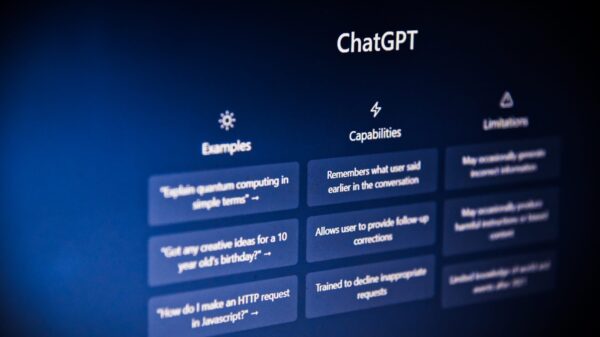Artificial intelligence (AI) has become an increasingly ubiquitous part of modern life, revolutionizing industries and transforming the way we live and work. However, the roots of AI can be traced back to the early pioneers who laid the foundation for this rapidly evolving field. In this article, we will delve into the origins of AI, explore the groundbreaking ideas and inventions that have shaped its history, and discuss the advancements that have led to the sophisticated AI systems we know today.
The Birth of AI and the Turing Test:
The concept of artificial intelligence can be traced back to ancient myths and legends, where artificial beings endowed with intelligence were often featured. However, the formal study of AI began in the 20th century with the work of British mathematician and computer scientist Alan Turing. Turing is often considered the father of AI, thanks to his groundbreaking 1950 paper, “Computing Machinery and Intelligence,” in which he proposed the now-famous Turing Test.
The Turing Test is an experiment designed to determine whether a machine can exhibit intelligent behavior indistinguishable from that of a human. In the test, a human judge engages in a conversation with both a human and a machine, without knowing which is which. If the judge cannot reliably distinguish between the two, the machine is said to have passed the test, demonstrating a level of intelligence comparable to a human’s.
Early AI Pioneers and Milestones:
Following Turing’s work, several pioneers made significant contributions to the field of AI, pushing the boundaries of what machines could achieve. Some key figures and milestones in the early years of AI include:
- John McCarthy and Marvin Minsky: These two researchers co-founded the MIT Artificial Intelligence Laboratory in 1959 and were instrumental in establishing AI as a legitimate field of study. McCarthy also coined the term “artificial intelligence” and developed the programming language LISP, which became widely used in AI research.
- Frank Rosenblatt: In 1958, Rosenblatt created the perceptron, an early artificial neural network that could be trained to recognize patterns. This invention marked the beginning of machine learning, a critical component of modern AI systems.
- Joseph Weizenbaum: In the 1960s, Weizenbaum developed ELIZA, a natural language processing program that could engage in simple conversations with users. ELIZA was an early example of a chatbot, paving the way for the development of more advanced conversational AI systems.
- Arthur Samuel: Samuel’s work in the late 1950s and early 1960s on checkers-playing programs demonstrated that computers could learn from experience, improving their performance over time through trial and error.
Recent Advancements in AI:
As technology progressed, AI continued to advance rapidly, with numerous breakthroughs occurring in recent decades. Some notable developments in AI include:
- Deep Blue: In 1997, IBM’s chess-playing computer Deep Blue defeated world champion Garry Kasparov, marking a significant milestone in AI’s ability to compete with human intelligence in complex tasks.
- Machine learning and deep learning: The development of advanced algorithms and the growth of computational power have allowed machines to learn from vast amounts of data, leading to significant improvements in AI’s capabilities.
- Natural language processing: AI systems like IBM’s Watson and Google’s BERT have demonstrated remarkable abilities to understand and process human language, enabling applications like search engines, chatbots, and virtual assistants.
- Computer vision: AI-powered image recognition and object detection systems have become increasingly sophisticated, with applications ranging from facial recognition to autonomous vehicles.
- AI ethics and explainable AI: As AI systems become more integrated into our daily lives, concerns about ethical considerations and the need for transparency in AI decision-making have come to the forefront. Researchers and developers are now working on explainable AI, which aims to make AI systems more understandable and accountable to humans.
ChatGPT
Perhaps the most popular of recent developments (and reaching critical mass) has been ChatGPT. This AI language model was developed by OpenAI, and based on the GPT (Generative Pre-trained Transformer) architecture, which is designed to generate human-like text in response to given prompts. ChatGPT is a descendant of the GPT series, with GPT-3 being its most recent predecessor before ChatGPT. GPT-3 was introduced in June 2020, and ChatGPT was developed as an improvement upon it. ChatGPT is designed to engage in more interactive and dynamic conversations, making it suitable for various applications like chatbots, content generation, and more.
A little about OpenAI
OpenAI was founded in December 2015 by a group of influential individuals in the fields of technology and artificial intelligence. The founding team includes Elon Musk (CEO of Tesla and SpaceX), Sam Altman (former president of Y Combinator and now CEO of OpenAI), Greg Brockman (CTO of OpenAI), Ilya Sutskever (Chief Scientist at OpenAI), John Schulman, and Wojciech Zaremba. The organization was created with the mission to ensure that artificial general intelligence (AGI) benefits all of humanity and to conduct research that makes AGI safe and drives its adoption across the AI community.
Conclusion:
The journey of artificial intelligence from its early beginnings to the advanced systems we know today has been marked by the groundbreaking work of numerous pioneers and visionaries. From the inception of the Turing Test to the development of machine learning, natural language processing, and computer vision, the field of AI has experienced rapid advancements that have fundamentally changed the way we live and work.
As AI continues to evolve and improve, the challenges and opportunities it presents will undoubtedly shape the future of technology, society, and our understanding of what it means to be intelligent. By looking back at the roots of AI and the accomplishments of its early pioneers, we gain valuable insights into the trajectory of this transformative field and the potential it holds for the future.




































